Table of Contents
- 1 Greater Waterbury Imaging Center’s Priority and STAT MRI Services
- 2 What Is a STAT MRI and Why Is It Critical in Emergency Care?
- 3 Categories of Emergency MRI Exam Prioritization
- 4 MRI Equipment and Technology at GWIC
- 5 Process for Scheduling a STAT MRI Exam
- 6 Preparing Patients for an Urgent MRI Exam
- 7 Indications for a STAT, Emergency, Urgent, or Priority MRI Exam
Greater Waterbury Imaging Center’s Priority and STAT MRI Services
G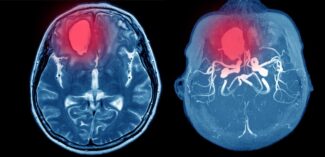 reater Waterbury Imaging Center is a comprehensive, freestanding MRI imaging center providing exceptional MRI services, including STAT MRI. We have earned the trust and confidence of physicians throughout our community who now depend on us to provide MRI services to their patients. This includes easy access to care, a comfortable exam, and fast, accurate results.
reater Waterbury Imaging Center is a comprehensive, freestanding MRI imaging center providing exceptional MRI services, including STAT MRI. We have earned the trust and confidence of physicians throughout our community who now depend on us to provide MRI services to their patients. This includes easy access to care, a comfortable exam, and fast, accurate results.
Greater Waterbury Imaging Center is located on the campus of Waterbury Hospital, adjacent to the Emergency Department. We have our own private, gated parking area for the convenience of our patients.
With two state-of-the-art MRI machines, GWIC is equipped to handle STAT (immediate), Urgent, Priority, and Emergency MRI examinations. GWIC’s priority imaging services provide the timely results physicians need to make informed clinical decisions. Beyond our Greater Waterbury footprint, we extend our STAT MRI services to patients in Connecticut, ensuring broader access to life-saving diagnostics. Primary Care Physicians, Specialists, and Urgent Care Centers are encouraged to contact our scheduling team with STAT MRI exam requests.
What Is a STAT MRI and Why Is It Critical in Emergency Care?
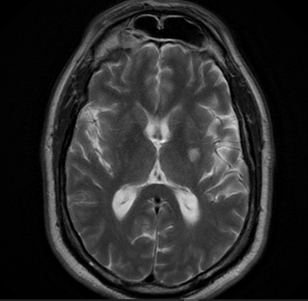 Magnetic Resonance Imaging (MRI) is a sophisticated technology that uses powerful magnetic fields, radio waves, and advanced computing to produce detailed images of the body’s internal structures. Unlike X-rays or CT scans, MRI excels at visualizing soft tissues—such as muscles, ligaments, the brain, and the spinal cord—in intricate detail without exposure to ionizing radiation.
Magnetic Resonance Imaging (MRI) is a sophisticated technology that uses powerful magnetic fields, radio waves, and advanced computing to produce detailed images of the body’s internal structures. Unlike X-rays or CT scans, MRI excels at visualizing soft tissues—such as muscles, ligaments, the brain, and the spinal cord—in intricate detail without exposure to ionizing radiation.
In STAT, emergency, urgent, and priority scenarios, MRI’s exceptional detail can pinpoint issues like acute neurological conditions, internal bleeding, or severe joint injuries. By capturing images rapidly and accurately, MRI exams help guide immediate interventions.
The difference between a routine and a STAT MRI meaning often lies in when an appointment can be accommodated and the turnaround time. STAT exams are arranged swiftly, normally within hours, enabling physicians to initiate treatment as soon as possible, drastically reducing potential complications and improving patient outcomes.
Categories of Emergency MRI Exam Prioritization
GWIC uses a structured approach to categorize MRI exams based on clinical urgency. However, in general terms, a STAT or Emergency MRI exam is any exam that the referring provider feels cannot wait, based on the patient’s condition and the need for intervention to treat.
There are no restrictions on the type of exam ordered. The major difference between STAT/Emergency and Urgent/Priority is when a patient needs to be seen as soon as possible, but the Radiologist does not need to call the results directly to the referring 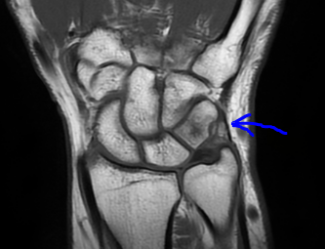 provider; instead, the referring office will wait for the faxed report to arrive.
provider; instead, the referring office will wait for the faxed report to arrive.
- STAT MRI Exams: Reserved for cases where immediate imaging is critical to patient survival or to prevent significant disability. For instance, a patient showing signs of stroke requires immediate imaging to determine treatment within a narrow therapeutic window.
- Emergency MRI Exams: Although slightly less immediate than STAT, emergency MRI exams remain high on our priority list. These typically address significant acute injuries or conditions that could worsen without timely evaluation, ensuring patients receive prompt imaging to guide urgent therapies.
- Urgent MRI Exams: Urgent scans are scheduled when conditions are serious but not immediately life-threatening. For example, acute but stable back pain with possible nerve involvement may warrant an urgent MRI. While not as immediate as a STAT exam, urgent MRI requests are often accommodated swiftly to expedite diagnosis and treatment planning.
- Priority MRI Exams: Designed for important, time-sensitive conditions that require expedited imaging, priority exams may not be tied to critical emergencies, but physicians still value quick turnaround to guide treatment strategies.
MRI Equipment and Technology at GWIC
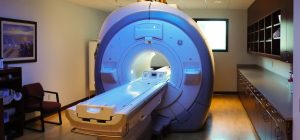
At GWIC, our two MRI machines represent the latest imaging technology, delivering superior image clarity and rapid scanning capabilities. These systems are specifically chosen for their ability to handle a wide range of urgent MRI imaging needs:
- Advanced Resolution & Speed: High-quality coils and cutting-edge software allow for exceptional detail, enabling radiologists to identify subtle abnormalities. Rapid acquisition times shorten exam durations, improving patient comfort and speeding the diagnostic process.
- Patient-Centric Design: Our MRI suites are designed for patient comfort. With wider bores and calming interiors, we minimize claustrophobia and anxiety. Every step—technology choice, room configuration, and staff training—is intended to ensure a positive patient experience while maintaining diagnostic precision.
- Seamless Connectivity: Each MRI system integrates with secure digital platforms, allowing immediate access to STAT MRI images by referring physicians. This connectivity reduces delays, ensuring clinical teams can rapidly review results and coordinate patient care.
Process for Scheduling a STAT MRI Exam
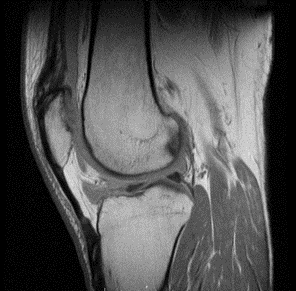 Arranging a STAT or urgent MRI at GWIC is a streamlined process designed to accommodate the rapid pace of emergency medicine. When referring physicians request a STAT exam, we will provide an appointment time, usually within 3-6 hours on the same day. At that point, the provider will need to obtain an insurance authorization, if needed, and fax that to the imaging center, along with the signed order request form. Claustrophobic patients can go on the larger MRI machine, which may take a little longer to schedule but typically within 3-6 hours.
Arranging a STAT or urgent MRI at GWIC is a streamlined process designed to accommodate the rapid pace of emergency medicine. When referring physicians request a STAT exam, we will provide an appointment time, usually within 3-6 hours on the same day. At that point, the provider will need to obtain an insurance authorization, if needed, and fax that to the imaging center, along with the signed order request form. Claustrophobic patients can go on the larger MRI machine, which may take a little longer to schedule but typically within 3-6 hours.
The referring provider will need to provide us with their best contact phone number so the radiologist can call them with the results once they are complete. Once the patient is scanned, the Radiologist will read and dictate the results. For ALL STAT MRI exams, the Radiologist will call the referring provider to give them the results within an hour after completion of the exam, and the dictated report is automatically faxed to the referring provider.
GWIC typically can accommodate up to 6 STAT MRI exam requests in our normal business hours, which are:
- Monday-Friday 7:30 am-10:00 pm
- Saturday 7:30 am-8:00 pm
- Sunday – Closed
If all time slots have been filled, we will almost always find a scan time by moving a non-urgent patient or rearranging the schedule to accommodate the request.
If the patient needs a STAT MRI, they can come to the center however they feel comfortable. We ask if they will need assistance when scheduling the exam so we can accommodate their needs. The center is at ground level, so there are no stairs, all doors auto open, and they arrive at the front desk.
Whether a referring provider needs immediate insight into a patient’s neurological status or an urgent care clinic seeks swift imaging of a complicated injury, our team prioritizes time-sensitive appointments. By maintaining flexible scheduling and close coordination with referring providers, we help reduce wait times and mitigate the stress associated with urgent imaging situations.
Preparing Patients for an Urgent MRI Exam
Understanding the MRI process can ease patient anxiety, even in urgent circumstances. Before the scan, patients or their caregivers receive clear instructions on what to expect. They learn that the procedure is painless, involves no ionizing radiation, and typically lasts 30 to 60 minutes, depending on the body part imaged. Our staff addresses questions upfront, ensuring patients understand how the imaging will help clarify their medical condition.
For those who may be anxious or claustrophobic, GWIC offers strategies to increase comfort, such as music to listen to during the exam and a specialized non-claustrophobic MRI machine with wider openings. Pediatric and geriatric patients also benefit from customized care protocols for their unique needs. Following the exam, results are prepared for swift interpretation by board-certified radiologists, who promptly communicate findings to the referring physician or provider. This rapid feedback loop allows the patient’s care team to initiate necessary treatments or interventions immediately.
Indications for a STAT, Emergency, Urgent, or Priority MRI Exam
While each patient’s situation is unique, there are certain clinical presentations and suspected conditions that commonly necessitate prompt MRI imaging:
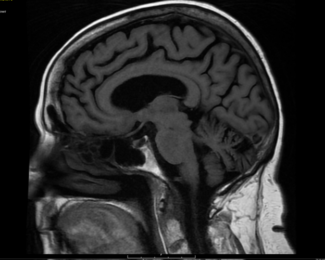 STAT MRI Indications:
STAT MRI Indications:
- Acute Neurological Events: Suspected stroke, intracranial hemorrhage, acute spinal cord compression, or severe head trauma requiring immediate evaluation.
- Time-Sensitive Organ Ischemia: Possible compromised blood flow to organs, such as the spinal cord or brain.
- Sudden Neurological Deficits: Rapid onset of numbness, weakness, or vision changes without a clear etiology.
Emergency MRI Indications:
- Severe Trauma and Injuries: Significant musculoskeletal damage (e.g., complex fractures, suspected ligament tears with nerve involvement) or acute back injuries where surgical intervention may be required promptly.
- Suspected Internal Injuries: Serious internal bleeding or damage to critical structures that might rapidly deteriorate without visual confirmation.
- Acute Infection or Inflammation: Spinal epidural abscesses, severe joint infections, or complicated abdominal issues where delayed diagnosis could lead to worse outcomes.
Urgent MRI Indications: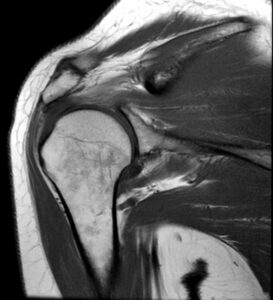
- Progressive Symptoms: Worsening back pain with radiating leg numbness, indicating possible nerve impingement that is not immediately life-threatening but could become more severe.
- Follow-Up on Recent Findings: An MRI may be needed urgently to clarify ambiguous results from another imaging modality or to monitor conditions that could escalate if left untreated.
- Non-Critical Neurological Symptoms: Subacute headaches, vision disturbances, or balance issues that warrant timely but not immediate imaging for diagnostic clarity.
Priority MRI Indications:
- Pre-Surgical Planning: Imaging to assist in planning surgeries that are scheduled but not emergent, ensuring surgeons have the detail needed for a procedure that cannot be delayed long-term.
- Chronic Conditions with Flare-Ups: Patients with known conditions like multiple sclerosis or complex arthritis who experience a sudden increase in symptoms that, while not emergent, still require prompt evaluation.
- Monitoring of Known Lesions: Checking growth or changes in a previously identified lesion, tumor, or structural abnormality within a short, but not urgent, timeframe.
By aligning these clinical indicators with the appropriate level of imaging urgency, referring physicians and healthcare facilities can ensure that patients receive the right level of diagnostic attention. This alignment helps streamline care delivery and improves patient safety, satisfaction, and health outcomes. Contact GWIC for all your imaging needs, including emergency and STAT MRI.


